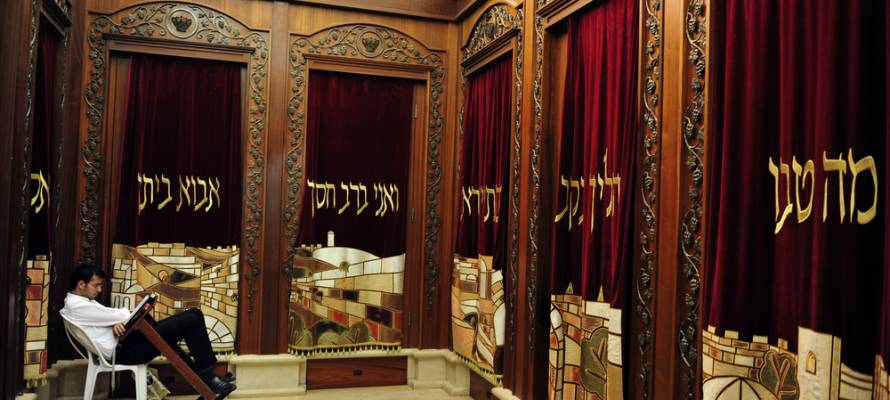
By Rabbi Ari Enkin, Rabbinic Director, United with Israel
Turning a synagogue into a sanctuary is not merely something to be experienced in a physical building. It is in this spirit that we must transform lives in this holy purpose.
This week’s Torah reading is Tetzaveh (Exodus 27:20 – 30:10), meaning “You shall command,” and it is essentially a continuation of what we began discussing last week in Teruma (Hebrew for “Donation”), regarding personal contributions towards the building of the Tabernacle.
In last week’s reading, we saw the list of materials that were required for building the Mishkan, the Tabernacle, or in more common parlance: the portable sanctuary. Among these materials were wood, gold, silver, copper, tapestries and jewels.
There is, however, something seemingly out of place on the list of materials necessary for the Tabernacle. All the items listed were needed for construction of the sanctuary. All of a sudden, however, we see that oil is included on the list, as well as a number of spices. Certainly one cannot build an edifice with spices and oil. They were necessary not for construction, but rather for the functioning of the Mishkan. The oil was for lighting the Menorah (seven-branched candelabra) and the spices were for the anointing oil that was used to sanctify the sacred vessels.
So why are the oil and spices included on the same list?
One of the answers offered is that of Rabbi Sampson Raphael Hirsch, a major 19th-century figure in Jewish philosophy and thought. He notes that in connection with the consecration of the Mishkan, and by extension, the Temple in Jerusalem, God promises: “If you will follow my laws…I will place My sanctuary among you.” To this, Rabbi Hirsch comments:
When the verse states, “I will dwell among you” and “I will place My sanctuary among you,” it extends far beyond the mere presence of God in the Holy Temple. Rather, it means that God will be close to us and in our midst, revealing Himself in all the happiness and prosperity of both our private and national life with His protection and blessing. This blessing is not brought about by the mere building of the sanctuary, but by consecrating our lives to observing the Torah.
With these thoughts in mind, we can better understand why the oil, and the incense spices, are included in a list of the materials needed for construction of the Mishkan. While wood, tapestries and the like were required for building the Mishkan, the oil and spices were needed for its functioning and operation. In other words: To build a factory is one thing, but to render it operational is quite another.
We need to realize that construction and function go hand and hand. In this case, the Mishkan was an edifice that allowed us to get close to God. The oil, and by extension the Menorah, made it possible! This is because the Menorah represented Torah study and wisdom, and without both, a person can never come to know God or to get close to Him. The combination of Torah study and the performance of mitzvot (commandments) must be “built” into the foundations of the Sanctuary. What is a synagogue worth if no one comes to pray in it? The Mishkan is the physical, while the oil and the Menorah represent the spiritual. Together, they fulfill one purpose, and hence, they appear on the same list.
We must not merely study the Torah, but we must live it as well.
It is for this reason that United with Israel has named this weekly column “Living Torah.” Learn it. Live it. Love it.
Click below to read more Living Torah articles on this week’s Torah portion:
